
Regionality is not so easy at all
We know it: foods that have to undergo long transports to be available at German supermarkets all year round – even though they seasonally grow in local regions. But what does regionality mean in relation to consumption? Which aspects are important for the handling of foods? What is significant for a consumer in terms of foodstuffs?
Pursuant to Duden, the word regionality defines „a larger area that is distinctive in a certain way”. It is clear to us that there cannot be any unified definition, as the consumer makes his/her own concept of regionality based on his/her habits, preferred style of life and adjustment.
What doesthe term “domestic“ mean
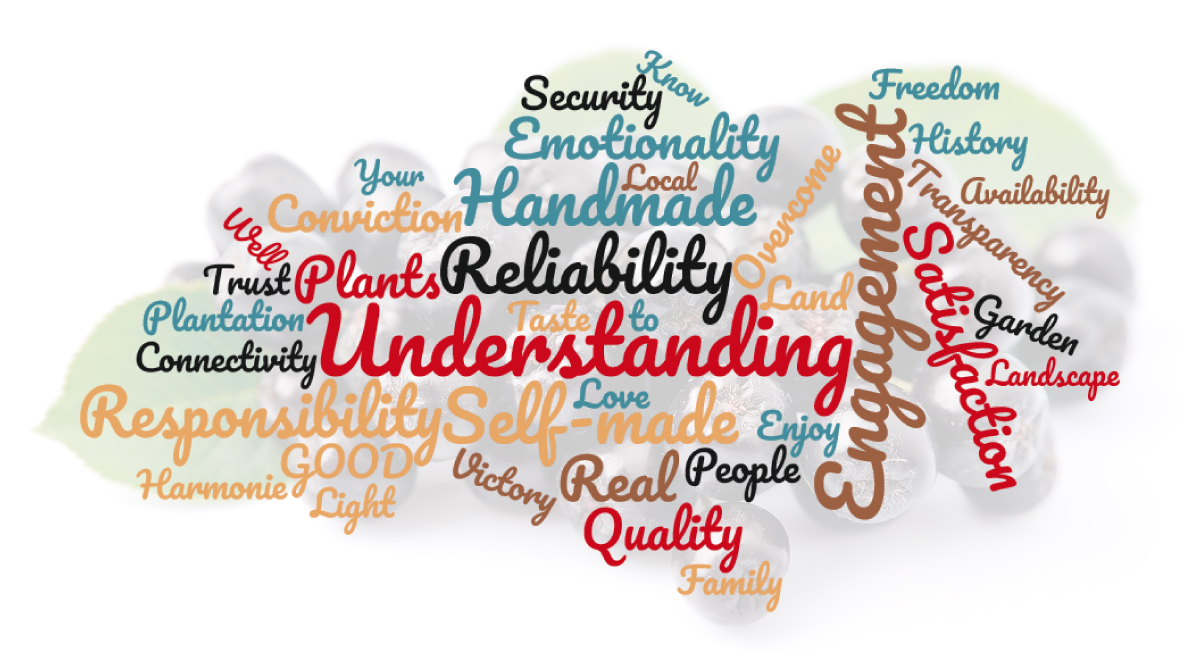
Everybody who consciously deals with his/her own consumer behaviour asks himself/herself about the origin, processing and quality of his/her food. We believe the regional products should be valued holistically: it begins with a close cooperation with farming partners, fair payments, much care when handling the raw material, it continues with careful processing and regular inspections, and it ends with an adequate price.
We believe it is important to understand one´s surrounding. We would like to offer you a transparent insight, so that you can see how Aronia ORIGINAL products are made. We are proud that we have partners on whom we can rely and colleagues who support us, and that we can offer a product that reflects safety and naturalness.
Insight
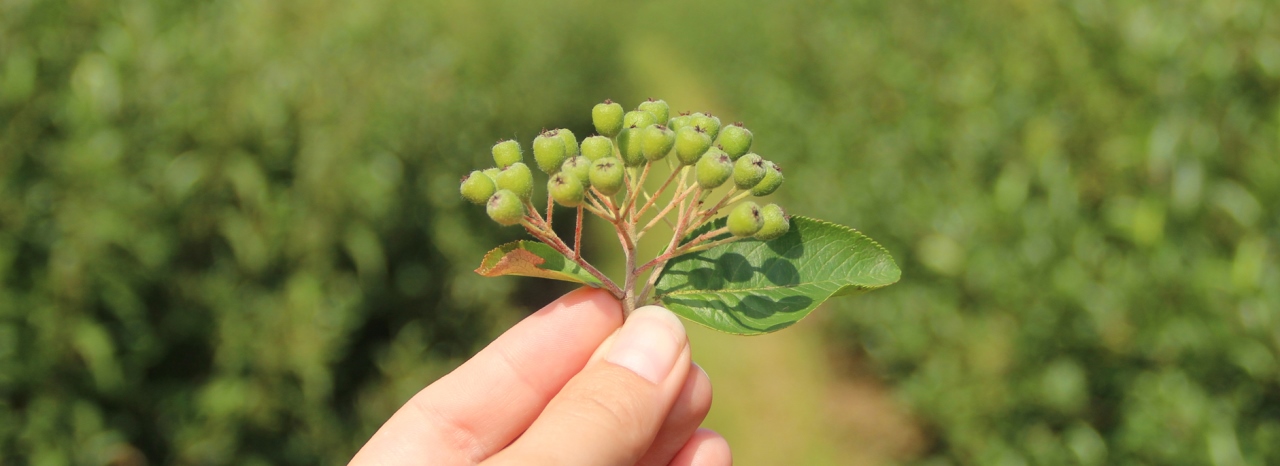
Already during the process of ripening, we pay attention to the quality of the Aronia berries – this is only possible if one knows where his berries grow.
Where do the products that we eat every day come from?
Even if a product is made in Germany, it does not mean that also the raw materials come from the region or Europe. An example: everybody knows them and has bought them for sure – bread rolls from the supermarket. Only very few customers know that the unbaked rolls have little to do with the traditional way of production. According to the Federal Statistical Office, about 130 000 tons of pre-baked breads and bread rolls are imported from France and China, among other countries (source 3). This corresponds to more than 2 billion bread rolls and breads. It is not clear which supermarket chains purchase the unbaked rolls and breads. Nobody wants to confirm this officially. The Germans eat about 6 million tons of bread and bread rolls every year. For this reason, it is more important to pay attention to and possibly to research where the consumed foods come from.
-
Bananas from India or from Ecuador
-
Pineapple from Hawaii, or
-
Mangoes from Mexico
What we really need from the above, or what we just eat because the offer is here, is up to everybody. There is not any uniform recommendation and it should not be any. Everybody should decide what is for their daily diet important.
We can already reach the first step towards this goal:
With our domestic organic Aronia juice with berries grown in Germany, we can not only have short transport distances and support our regional partners, but we also refer to the regional value chain.
For this reason, we can offer you the best Aronia ORIGINAL product quality with an especially delicate taste.
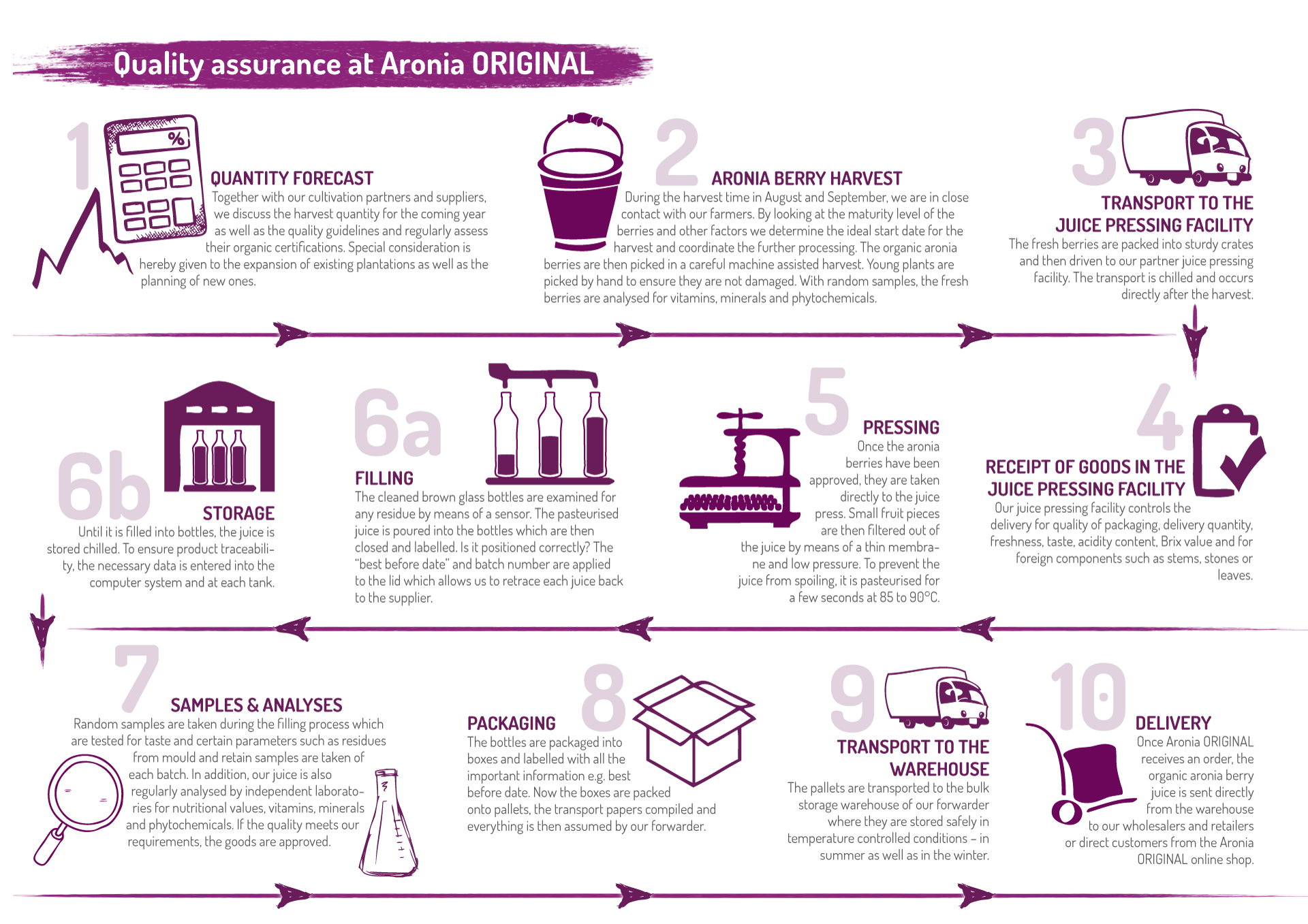
Raw material transparency
Even we as enterprise cannot get all the raw materials for our products from the region – even though we would be happy to do it.
We respect our demand “as nearby as possible, as distant as necessary” through the entire line. In the case of our 7 Lives direct juice series, we decided consciously to process only fruits and berries from European organic farms. We don’t only want to keep the transport distances as short as possible, we also primarily wish to support regional farming.
The currants for our 7 Lives currant direct juice delivers an example in this connection. For the last two years, we could harvest an increasing quantity of German organic currant berries.
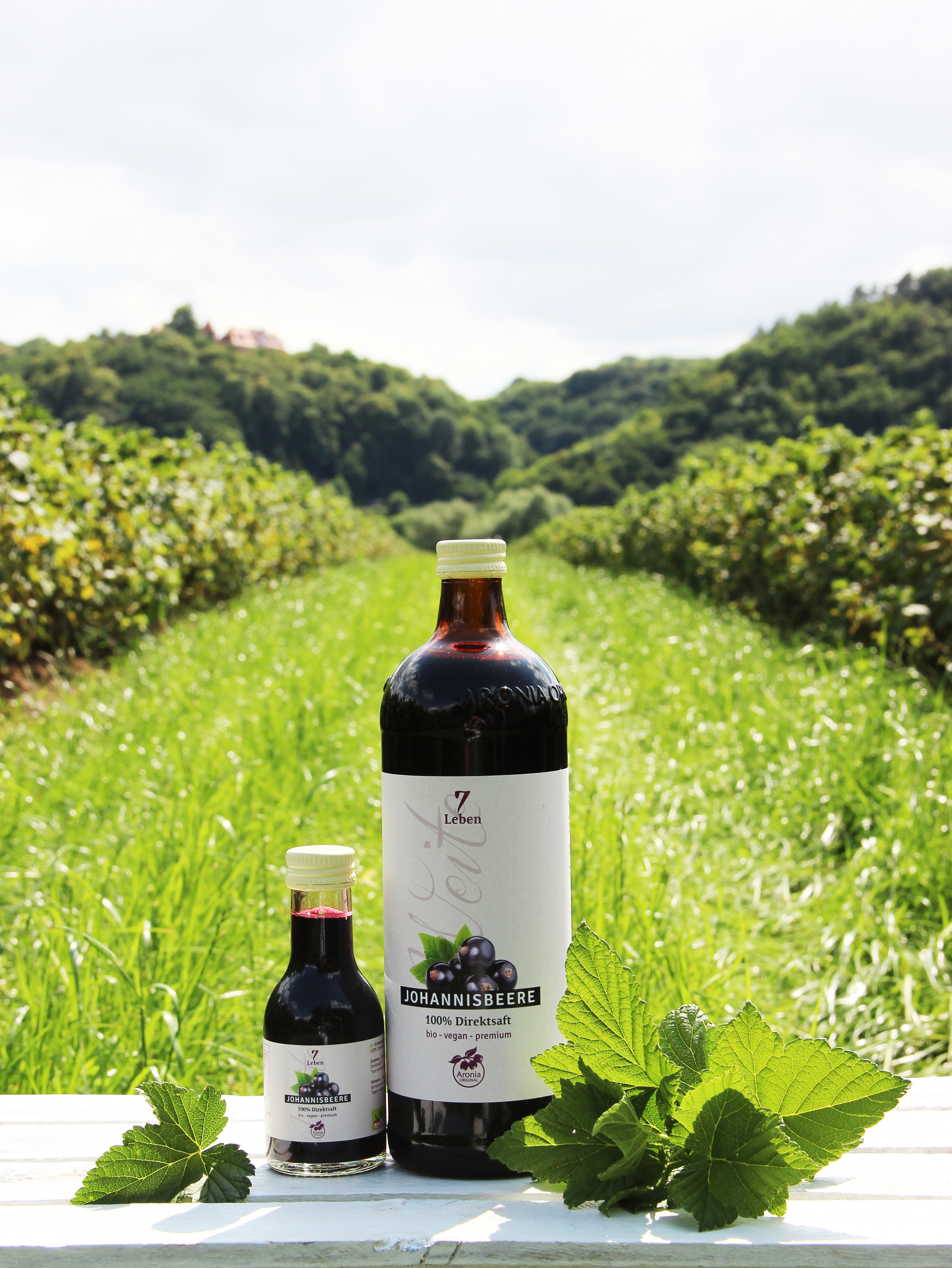
Here you can see our growing areas for our raw products
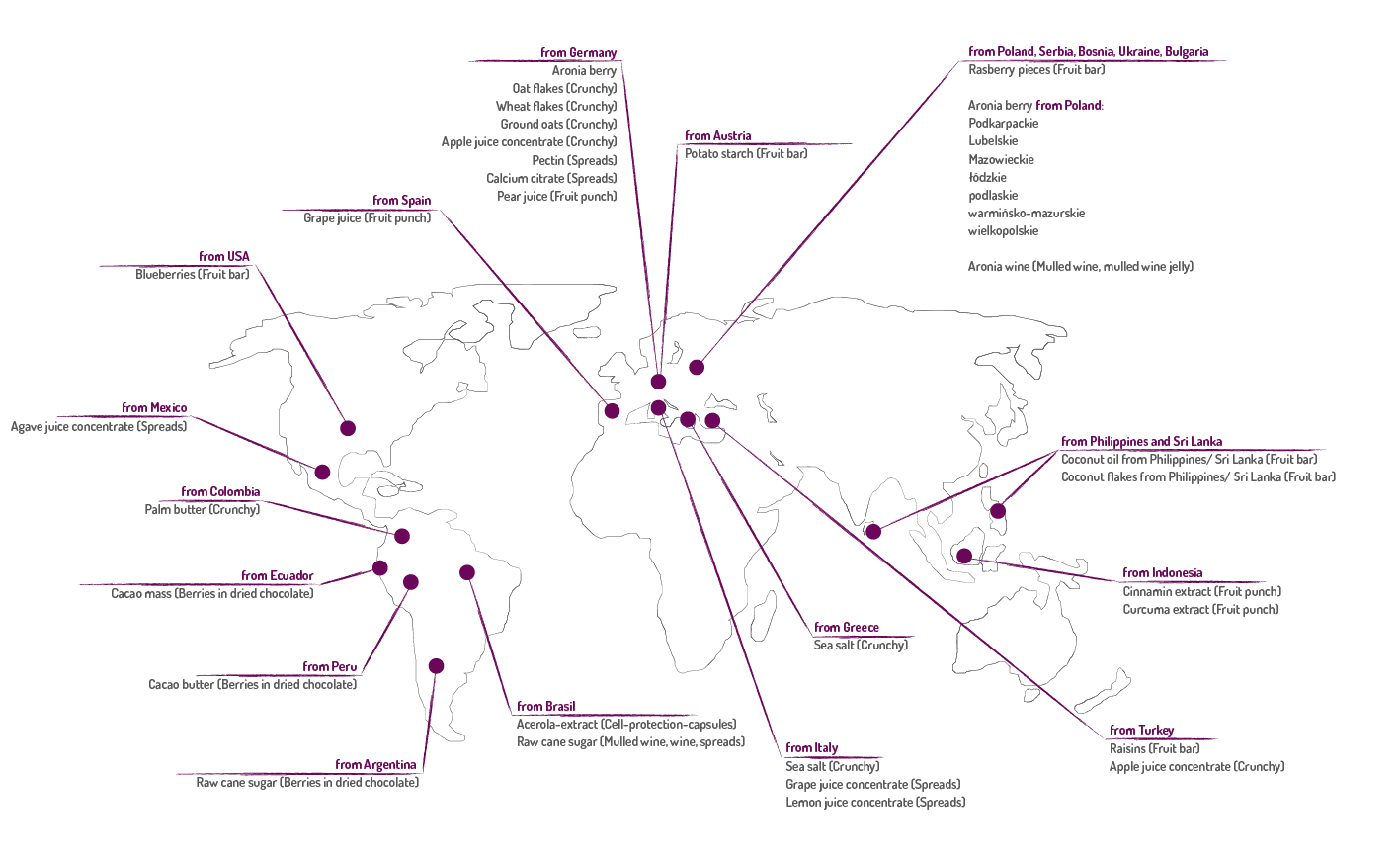
It is not possible to make everything from today until tomorrow. But we are working on it, we promise.
Have we made you think about that?
The following two articles are supposed to deliver a little more information for those who want to deal with the topic more thoroughly. The first link leads you to a report from the food practice, which – even though it was written in 2013 – has not lost its topicality. The other report from entega, which deals with local supplies versus global purchase, brings up the always actual topic about foods and their origin.